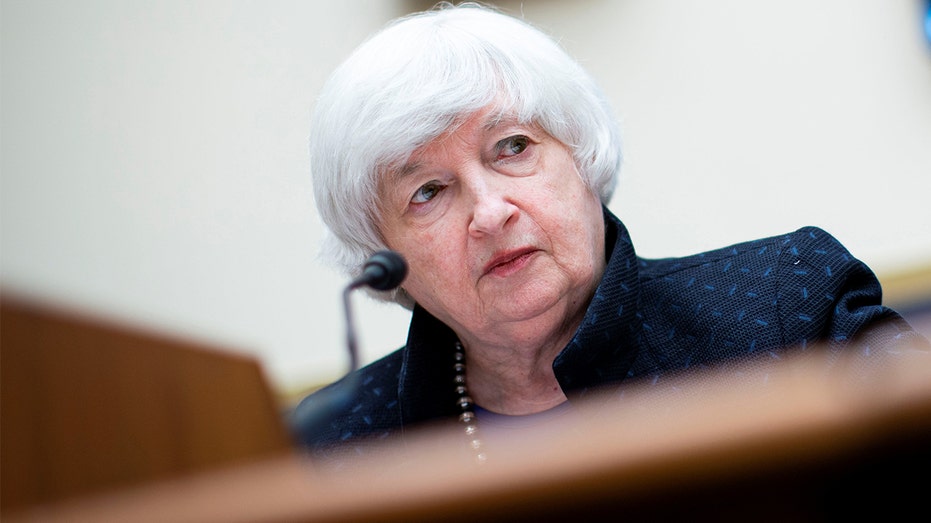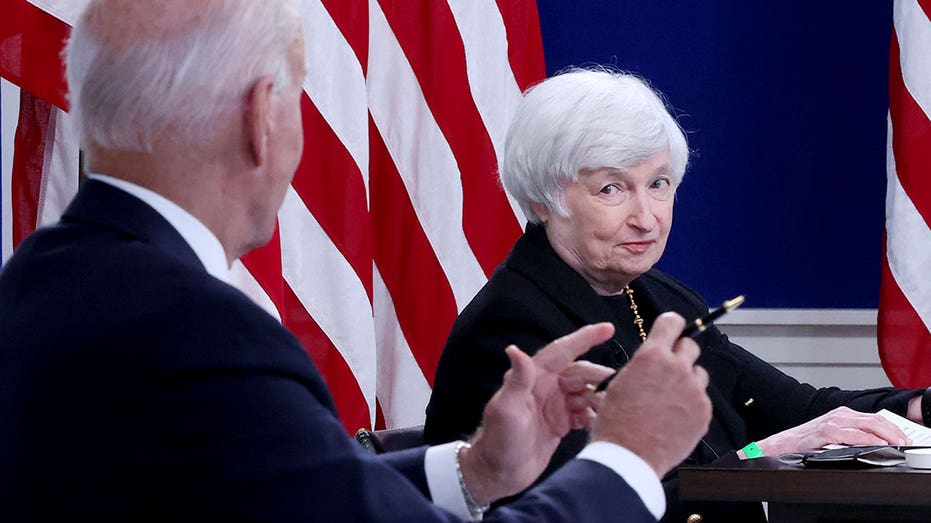Yellen: Federal Reserve won't allow inflation to reach 1970s levels
Yellen says she expects inflation to return to an acceptable level of roughly 2% by next year
Treasury Secretary Janet Yellen downplayed concerns Tuesday that inflation could spike to levels seen during an economic downturn in the 1970s, asserting that the Federal Reserve would act before a surge of that magnitude could occur.
Yellen has repeatedly said that she expects inflation to return to acceptable levels of roughly 2% by in 2022. She reiterated that stance during an appearance on the "Marketplace" radio show, arguing economic conditions will improve as the economy recovers from the COVID-19 pandemic.
When asked about the possibility that her forecast was incorrect, Yellen sought to assure that the inflation situation will be "watched carefully." She said the Federal Reserve "wouldn’t permit" a return to the double-digit inflation levels seen in the 1970s, when Americans experienced nationwide gas shortages and other economic hardships in the aftermath of the Vietnam War.
BIDEN POLICIES ‘DRAMATICALLY’ IMPACTED SUPPLY CHAIN CRISIS, INFLATION: FMR. MCDONALD'S USA CEO

Treasury Secretary Janet Yellen attends the House Financial Services Committee hearing in Washington, September 30, 2021. (Al Drago/Pool via REUTERS / Reuters Photos)
"Monetary policy would have a role to play if this turns out to be something that’s endemic," Yellen said. "In the 1970s, we saw supply shocks turn themselves into endemic inflation, wages increased, prices increased as a consequence. We’re not seeing that now. I don’t believe we will. But if that were the case, the Federal Reserve would have a role to play to keep it under control."
Inflation reached a 13-year high of 5.4% as of September. The Biden administration has faced mounting pressure to address the high cost of daily necessities, such as gas and meat, while businesses are contending with supply chain bottlenecks and labor shortages.

U.S. Treasury Secretary Janet Yellen (C) listens to President Joe Biden during a hybrid meeting with corporate chief executives and members of his cabinet on October 06, 2021 in Washington, DC. (Chip Somodevilla/Getty Images / Getty Images)
Former Obama administration economic adviser Larry Summers is a notable critic of Yellen’s stance, asserting last month that he felt there was a "less than a 50/50 chance" that she was correct about inflation declining by next year.
"Expect to see more labor supply, a more normal pattern of demand," Yellen told "Marketplace." "As people feel safer, the demand for these goods, whose prices are rising, will diminish, and they’re going to go back to services in a more normal pattern. And at that point, I’d expect the price increases to level off, and we’ll go back to inflation that’s closer to the 2% we consider normal."

In this Sept. 30, 2021, file photo, Federal Reserve Chairman Jerome Powell testifies during a House Financial Services Committee hearing on Capitol Hill in Washington. Powell says the tangled supply chains and shortages that have bedeviled the U.S. e (Sarah Silbiger/Pool Photo via AP, File / Associated Press)
Republicans argue the Biden administration’s economic policies are responsible for rising inflation. They warn the crisis could worsen if Congress enacts Biden’s expansive social spending bill.
GET FOX BUSINESS ON THE GO BY CLICKING HERE
Meanwhile, the president and his allies say the inflation levels are transitory. President Biden has argued his infrastructure and spending bills will help to address the underlying causes.





















